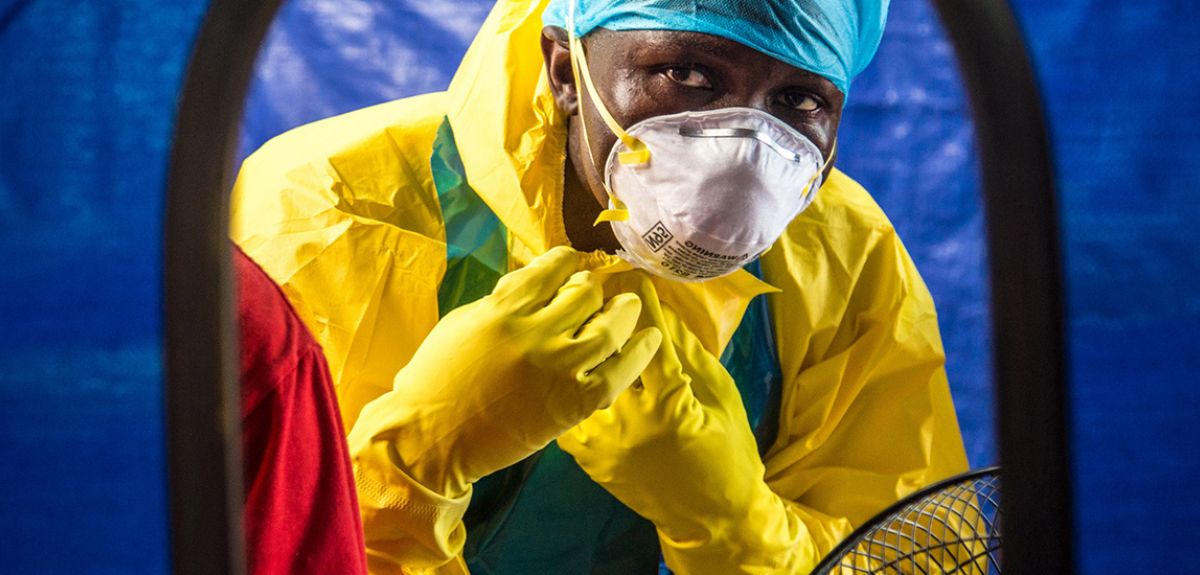
Credit: Michael Duff/AP/Press Association Images
Survivors' blood plasma to treat Ebola is safe but more data needed
There are currently no effective treatments for Ebola, but blood plasma from people who have survived Ebola may be one potential treatment: this component of blood may contain antibodies that likely helped survivors successfully fight off the disease.
During the 2015 Ebola outbreak in West Africa researchers carried out the largest ever trial of convalescent plasma for the treatment of Ebola. They found that such treatment during an Ebola virus disease outbreak is feasible and safe to use, and acceptable to donors, patients and health workers.
The study was conducted at the Donka Ebola Treatment Centre in Guinea, run by Médecins Sans Frontières (MSF), and carried out by a consortium led by Professor Johan van Griensven from the Institute of Tropical Medicine in Antwerp that includes Professor Peter Horby from the Epidemic diseases Research Group (ERGO) at the University of Oxford.
The study, published in the New England Journal of Medicine, however found that the treatment as given in the trial did not significantly improve the survival chances of Ebola patients. One reason for this may be that the levels of neutralising antibodies against the Ebola virus in the donors' plasma were variable, and higher levels of antibody in the plasma are needed to fight the disease.
This study was carried out in the field during an active Ebola outbreak, and tests to measure antibody levels in donors' plasma were not available on site. Samples have been shipped to France for further analysis. The results of this analysis will be available in the coming months and may help to work out whether plasma with higher levels of antibodies is more effective.
The study ran between February and July 2015. Convalescent plasma was one of the possible treatments for Ebola identified by the World Health Organization due to the successful treatment of other viruses such as measles, yellow fever and influenza with convalescent plasma.
The study enrolled 102 patients. Patients of any age with confirmed Ebola virus disease (including pregnant women) received two units of 200-250ml from different convalescent donors within 48 hours after a laboratory-confirmed diagnosis, as recommended by the World Health Organization.
Historical patient data was used as a control and the primary outcome was survival at day 14 after transfusion, adjusting for the amount of Ebola at diagnosis and excluding deaths within two days of diagnosis. 84 patients received the convalescent plasma, these patients were compared to 418 controls. The mortality between days 3 and 17 in the treated patients was 31.0% compared to the untreated patients (at 37.8%). When the patient age and amount of virus was taken into account the difference in mortality decreased to 2.6%. All of the patients admitted to the Donka centre consented to take part in the trial.
 Expert Comment: Church-to-mosque conversions grab headlines, but is funding the real crisis?
Expert Comment: Church-to-mosque conversions grab headlines, but is funding the real crisis?
 Expert Comment: Four years of full-scale war and Ukrainian resistance continues
Expert Comment: Four years of full-scale war and Ukrainian resistance continues
 Oxford and Liverpool join forces to tackle global challenges
Oxford and Liverpool join forces to tackle global challenges